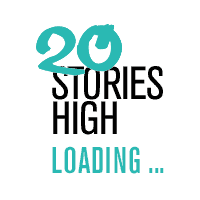The Access Manifesto
Back in March 2023 we joined forces with our theatre mates from London Graeae and worked with over 60 Deaf, Disabled, and neurodivergent young people and young adults from across the country, from Liverpool, London, Leeds, Chester, and Manchester.
Our journey with Graeae began in 2023 with our award-winning show, “High Times and Dirty Monsters”, which addressed the challenges faced by young Deaf, Disabled, and neurodivergent individuals
Maisy Gordon, one of the actors in the show, and Ayzah Ahmed, a participant, recognized the need for ongoing activism. They found that many arts spaces were failing not only them but also the majority of disabled people they engaged with.
They collected all of the thoughts, ideas, and provocations to develop a practical, step-by-step guide aimed at helping arts organizations and venues take significant strides toward making the arts more accessible for young audiences, participants, and artists.
The Access Manifesto is our response—a beacon of change, developed by those directly impacted, to inspire and guide the arts sector towards a more inclusive future. We invite you to join us in embracing this new chapter for the arts. Together, we can create a world where every young person, regardless of their abilities, can enjoy and participate in the arts.

Access Manifesto Film
Watch our Access Manifesto film!
Featuring captions and British Sign Language.
Performed by Maisy Gordon, Ayzah Ahmed and Jayden Reid.
Full FilmThe Access Manifesto Document
Featuring the full poem and the 8 clear action points, this document has all the detail.
Created by Maisy Gordon, this document is available in a range of formats. If you require any additional formats, please get in touch with Amy on amy@20storieshigh.org.uk
Full Access Manifesto
- Full Access Manifesto
- Full Access Manifesto – Plain Text
- Full Access Manifesto – Dyslexia Friendly
- Full Access Manifesto – Easy Read Style
Access Manifesto Points
- Access Manifesto Points
- Access Manifesto Points – Plain Text
- Access Manifesto Points – Dyslexia Friendly
- Access Manifesto Points – Easy Read Style
Other Resources & Information
User Quotes…
‘The Access manifesto is a really important document. I feel it is a good baseline that organisations should work towards. Then they can add what’s more specific to their and their audiences needs.
We particularly found the access tracker and template really useful and we have adopted it and tweaked it for our own use. I would definitely recommend using these tools and checking in with 20 Stories High.’ – First Take
‘It was such a joy to have attended the access manifesto, as a disabled and neurodiverse actor and producer it is brilliant to see these initiatives happening within the city. In the lead up to the event I felt safe to ask for what I needed and this was fully supported. It was so useful to talk to other organisations big and small about how they are currently making lasting change and what initiatives they are using to do so. It was a safe, supportive and innovative space. So excited for things to come and how we can make lasting changing that is so long overdue.’ – Liverpool’s Royal Court
‘When leading the Young Producers programme, we were able to use the Access Manifesto as a core resource to unlock key concepts and empower even early career producers to be agents for change in the spaces they work in. We’re passionate about developing young artists who are informed in matters related to access and who feel empowered to continue furthering their knowledge and development in this area. The access manifesto allowed us to simply and cohesively introduce a range of topics, resources, and considerations in a way we’ve not previously been able to. Our Young Producers improved the accessibility of the events they generated for us, and have since continued to ask questions about how they can apply these principals in their own freelance work. It’s a fantastic teaching resource, the scalability works for a range of purposes, and inspires hope in an area that a lot of artists feel overwhelmed by’ – Almeida Theatre
Pledge to follow The Access Manifesto now!
This is where you come in—we invite everyone to pledge to follow the manifesto and help us make a real change.
We understand that not all points can be met immediately; achieving full accessibility is an ongoing journey.
With that in mind, we have broken The Access Manifesto into 4 stages:
-
Find out more – Watch, read and learn about The Access Manifesto. Share it with your community and help us spread the word.
-
Assess your current situation – Use The Access Manifesto to understand what you are already doing, and what needs improvement.
-
What can be done short term – What things from The Access Manifesto can you implement in the short term? These could be free and low cost practices that are as simple as looking at your accessibility on social media or changing the font on promotional material to one that is dyslexia friendly.
-
What can you do long term – What are the things that will require more time, money and planning? These are things such as lift access or staff training about Neurodiversity. We understand these aims take more time, but identifying them and putting a plan in place to work towards them are a crucial step towards making the arts barrier free to all.
Together, we can inspire change and create a more inclusive arts sector for everyone.
We would love to see your progress and hear about the impact of the access manifesto in your organisation. Please pledge to follow The Access Manifesto and keep us up to date with how it is going using our Access Tracker.
We at 20 Stories High are learning too and access is a vital part of our company’s mission. We don’t always get it right, but we are always learning and aiming to be better.
If you’re a Deaf, disabled and/or neurodiverse creative, please feel empowered to share this with organisations, businesses or venues so that they can adopt The Access Manifesto into their practice.
Join us in the fight for equal access in the arts and beyond!



